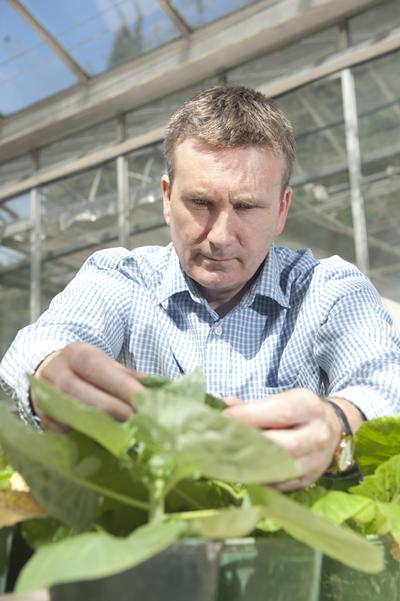A ‘perfect storm’ is on the way and we need to prepare ourselves

Scientists are warning we are undertaking “the greatest challenge we have ever faced” in trying to get more from the earth to feed the world’s growing population.
Writing in and editing a special edition of Philosophical Transactions of the Royal Society B*, Professor Guy Poppy, of the University of Southampton, says the world's approach needs to change in order to get more from the land without harming it.
"We cannot go backwards," Professor Poppy says. "We have to get more from the farming environment because there's a growing population. But we cannot do it in the same way as we have been doing for the last 2,000 years. We must make it more sustainable."
This latest edition of the journal from the Royal Society includes the ‘Kavli Declaration' which sets out a global vision for 2050 and calls for a more scientific approach to Sustainable intensification (SI) of crop production - a process whereby the yield increases but the impact on the land is minimal.
The journal's authors say that a wider debate on the world's most pressing questions needs to take place and we need to get better at protecting the environment and reacting when contaminations happen. Additionally investment and creativity is needed within new scientific technology so we develop plants or management practices which allow crops to protect themselves more effectively. Crucially, how we view the environment needs to evolve so that agriculture is seen as part of the environment and not something separate from all other ecosystems.
Professor Poppy comments: "The scientific research taking place in universities and institutes is key in helping us face this unprecedented challenge. For example, work to develop seeds so the resulting plants are better at defending themselves is vital. Furthermore, changing the way we look at agriculture to seeing it as part of the environment is important to ensure people in some of the most vulnerable places - for example where the forests meet agriculture - in the world can live healthier lives and be lifted out of poverty."
Professor Poppy is leading a study in Malawi to look at how best to manage the forest/agriculture interface. The ASSETS project, which is also published in the special edition, has shown that issues differ depending on the area and may not fit with national policy or priorities and this needs to be taken into account. Moreover the trade-off between one benefit against another is an important factor.
Professor Poppy adds: "Countries like Malawi face a problem between producing enough food for themselves to live off whilst not degrading the environment, which is crucial for helping provide the food of the future. Many methods of agriculture or managing the environment are not sustainable. The trade-off question of allowing managers to see who wins and loses and how to deliver the optimal solution has been a big challenge in the past. It is a new aspect, possible through the work of Southampton, in solving this global challenge."